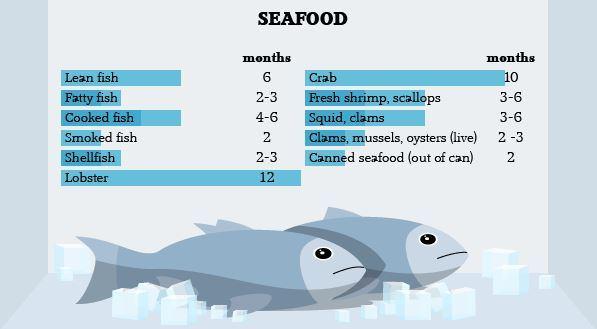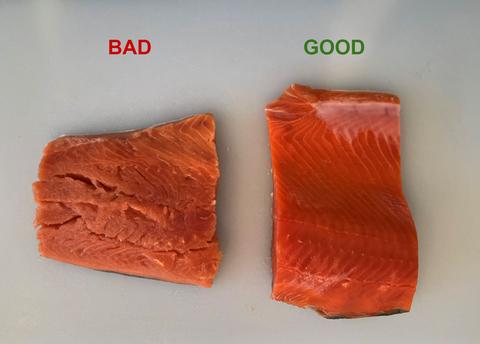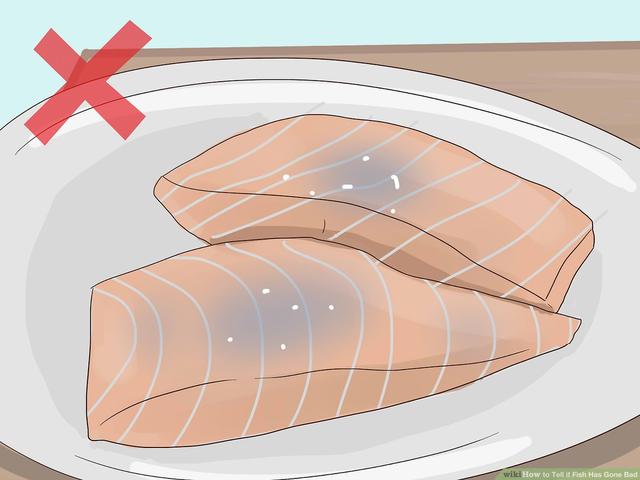
“Fish Thawed in Fridge: Unveiling the Perils of Extended Defrosting”
How Long Can Thawed Fish Stay In The Fridge

Thawed fish can stay in the fridge for up to two days before it starts to spoil. It is important not to leave the fish in the fridge for longer than this, as it may develop a foul smell and become unsafe to eat. If you are not able to cook the fish within two days, it is recommended to wrap it up and freeze it again to ensure its safety.
When thawing fish in the fridge overnight, it is best to cook it right away after it has fully thawed. Leaving it for more than two days can lead to spoilage and increase the risk of foodborne illnesses such as scombroid food poisoning. This type of food poisoning can cause symptoms like flushed skin, blurry vision, gastrointestinal issues, and headaches.
To prevent any potential health risks, it is crucial to properly store and handle thawed fish. If you notice a foul smell or slimy texture on the fish, it is a clear indication that it has spoiled and should not be consumed. To maintain the quality of frozen fish, be mindful of its storage time in the freezer, with most varieties being safe to consume within 3-8 months.
Overall, while thawing fish in the fridge overnight is a convenient method, it is essential to follow proper guidelines and ensure that the fish is cooked or refrozen within two days to avoid any potential health hazards.
How Long Can Fish Stay In The Freezer?
Fish can be stored in the freezer for varying lengths of time depending on the type and condition of the fish. According to the USDA, most fish can be stored indefinitely in the freezer. However, it is important to note that while fish can be frozen for a long time, the taste and texture may suffer if it is frozen for too long. Therefore, it is recommended to use frozen shellfish within 3-12 months and whole raw fish within 3-8 months.
To keep track of how long fish has been in the freezer, it is advisable to label the date it was frozen on its packaging. This way, you can easily determine its freshness and quality when you decide to thaw and cook it. Spoiled fish in the freezer will have a distinct foul odor that is often described as too “fishy” or ammonia-like.
How Can You Tell If Fish Is Spoiled?

Fresh fish will have a mild, aquatic smell, or it may not smell like much at all. However, spoiled fish will have a distinct foul odor that is often described as too “fishy” or having an ammonia-like scent. Discoloration around the gills of whole fish can also indicate spoilage. When it comes to fish fillets, another telltale sign of spoilage is sliminess. While fresh fish should be moist to the touch, if you detect a slimy texture, it is no longer safe to eat.
Eating fish that has been thawed in the fridge for more than two days is a dangerous idea. Consuming spoiled fish can lead to scombroid food poisoning, which is caused by bacteria that thrives in fish at certain temperatures. Symptoms of scombroid food poisoning include flushed skin, blurry vision, gastrointestinal issues, headache, elevated heart rate, and body rash. Treatment usually involves taking antihistamines and sometimes administering epinephrine for severe symptoms.
To prevent the risk of consuming spoiled fish and experiencing food poisoning, it is best to keep fish frozen until ready to cook. Raw fish can be stored in the freezer for 3-8 months depending on its type. Thawed fish should be cooked right away or consumed within two days if kept in the refrigerator.
What Are The Dangers Of Eating Spoiled Fish?

Eating spoiled fish can pose several dangers to your health. One of the main risks is food poisoning, specifically scombroid food poisoning. This occurs when fish has been stored for too long and falls into the temperature danger zone, allowing bacteria to multiply. Consuming fish that has been spoiled can lead to symptoms such as flushed skin, blurry vision, gastrointestinal issues, and headaches. These symptoms can last for up to two days and may also include an elevated heart rate or a body rash. Treatment usually involves antihistamines or, in severe cases, epinephrine.
In addition to food poisoning, eating spoiled fish can also result in a foul taste and texture. As fish spoils, it develops a distinct “fishy” odor and may have an ammonia-like scent. The flesh of the fish may become slimy or squishy, indicating that it is no longer safe to consume. Consuming spoiled fish not only poses health risks but also leads to a negative dining experience.
To avoid these dangers, it is important to properly store and handle fish. Thawed fish should be cooked within two days of being taken out of the freezer. If you are unable to consume it within this timeframe, it is best to wrap it up and freeze it again. Properly wrapping the fish in foil or freezer paper will help maintain its quality when stored in the freezer for an extended period of time.
Scombroid Food Poisoning
Scombroid food poisoning is a type of foodborne illness that can occur when fish is not handled or stored properly. It is caused by the growth of bacteria, specifically histamine-producing bacteria, in fish that is kept at improper temperatures. The bacteria thrive in fish that has been left in the temperature danger zone, which is between 40°F (4°C) and 140°F (60°C).
When fish is not stored at the correct temperature, these bacteria can multiply rapidly and produce high levels of histamine. Histamine is a chemical that can cause allergic reactions when consumed in large amounts. Symptoms of scombroid food poisoning usually appear within minutes to an hour after consuming contaminated fish.
Common symptoms of scombroid food poisoning include flushing or reddening of the skin, blurred vision, gastrointestinal issues such as nausea, vomiting, and diarrhea, headache, elevated heart rate, and body rash. These symptoms can last for up to two days.
Conclusion

In conclusion, thawing fish in the fridge is a convenient and safe method to prepare it for cooking after being frozen. However, it is important to note that thawed fish should not be kept in the fridge for more than two days as it can spoil and develop a foul smell. To ensure the safety of consuming fish that has been thawed but not immediately cooked, it is recommended to wrap it up and freeze it again. The USDA states that most fish can be stored indefinitely in the freezer, although taste and texture may suffer if frozen for too long. It is essential to properly label and date the fish when freezing to keep track of its storage time.
Furthermore, identifying spoiled fish is crucial in preventing food poisoning. Spoiled fish will have a distinct foul odor and may display discoloration or sliminess. Consuming fish that has been thawed in the fridge for more than two days can lead to scombroid food poisoning, which presents symptoms such as flushed skin, blurry vision, gastrointestinal issues, and headaches. Treatment usually involves antihistamines and, in severe cases, epinephrine.
In summary, while thawing fish overnight in the fridge is a reliable method, it is important to adhere to proper storage guidelines and consume thawed fish within two days to ensure freshness and prevent foodborne illnesses.
In conclusion, thawing fish in the refrigerator for 3 days is generally safe if done correctly. However, it is important to ensure that the fish remains at a constant temperature and is properly sealed to prevent contamination. Additionally, always check for any signs of spoilage before consuming the thawed fish to ensure food safety.
Learn More About Grilling
If you want to learn more about grilling, check out these other helpful resources!






